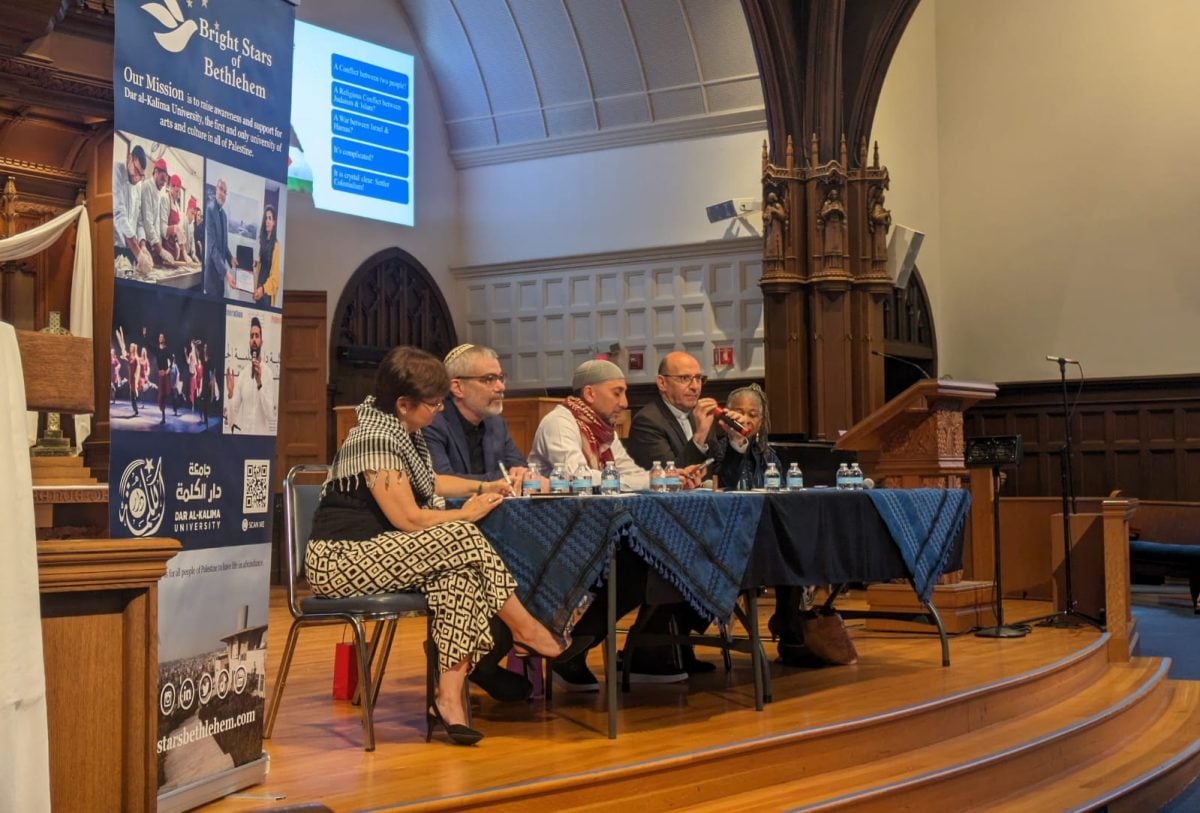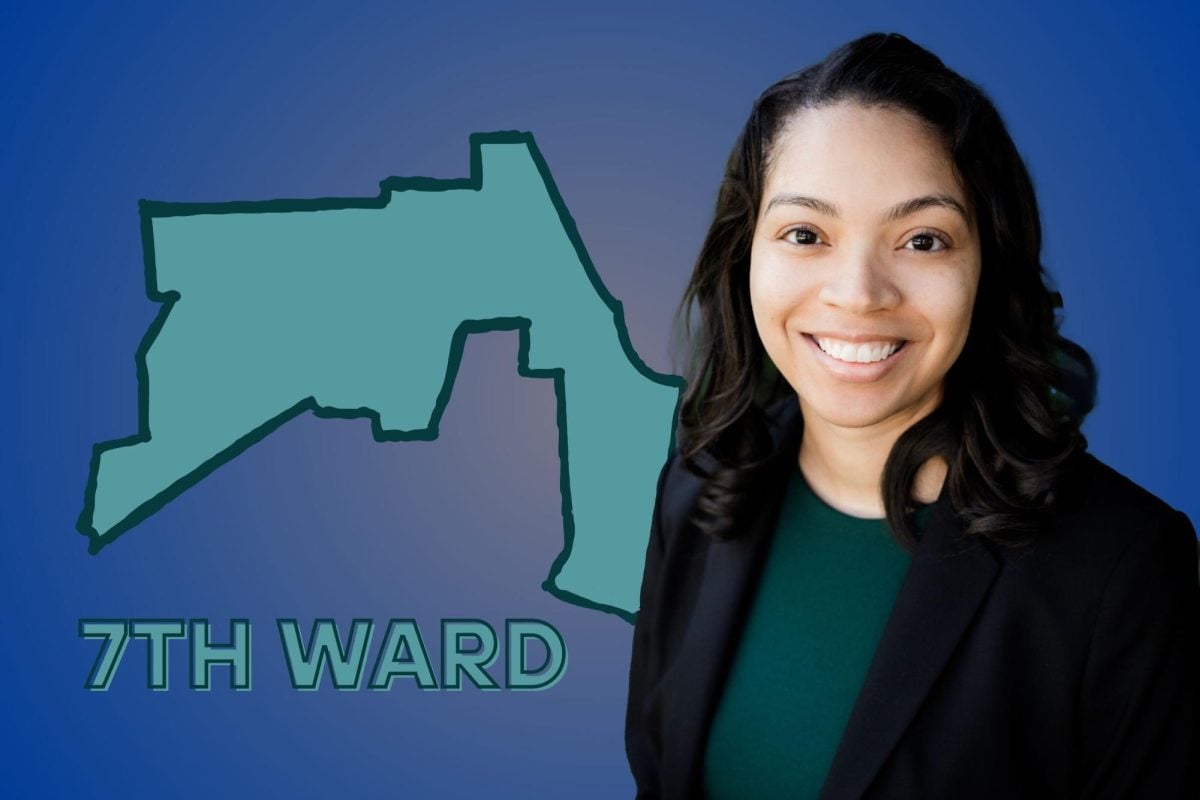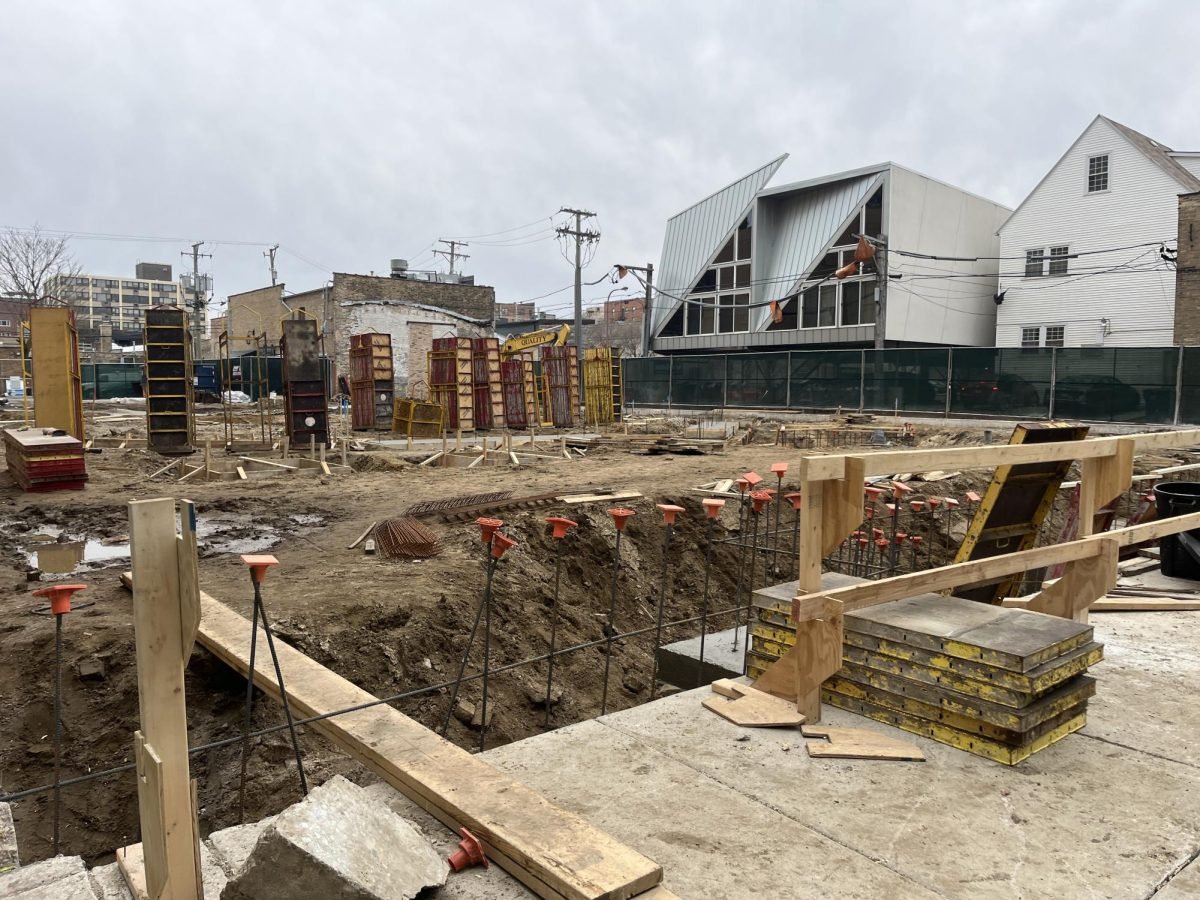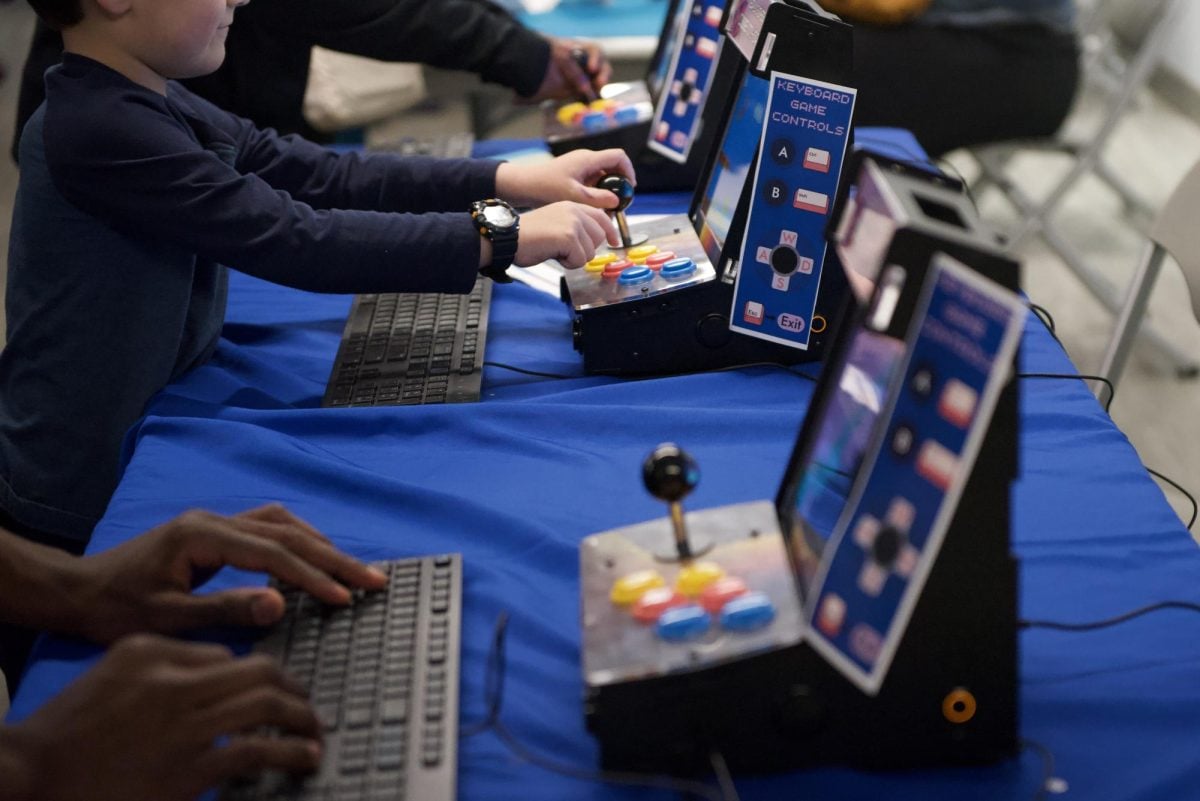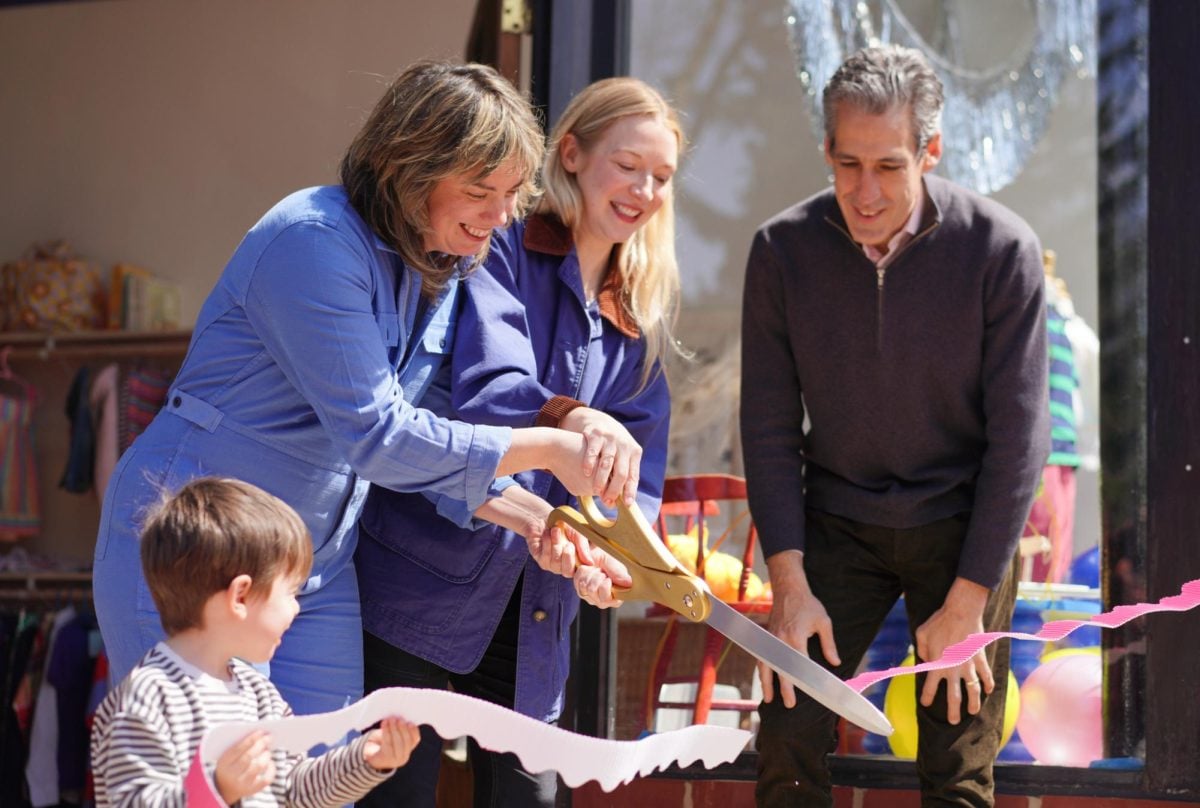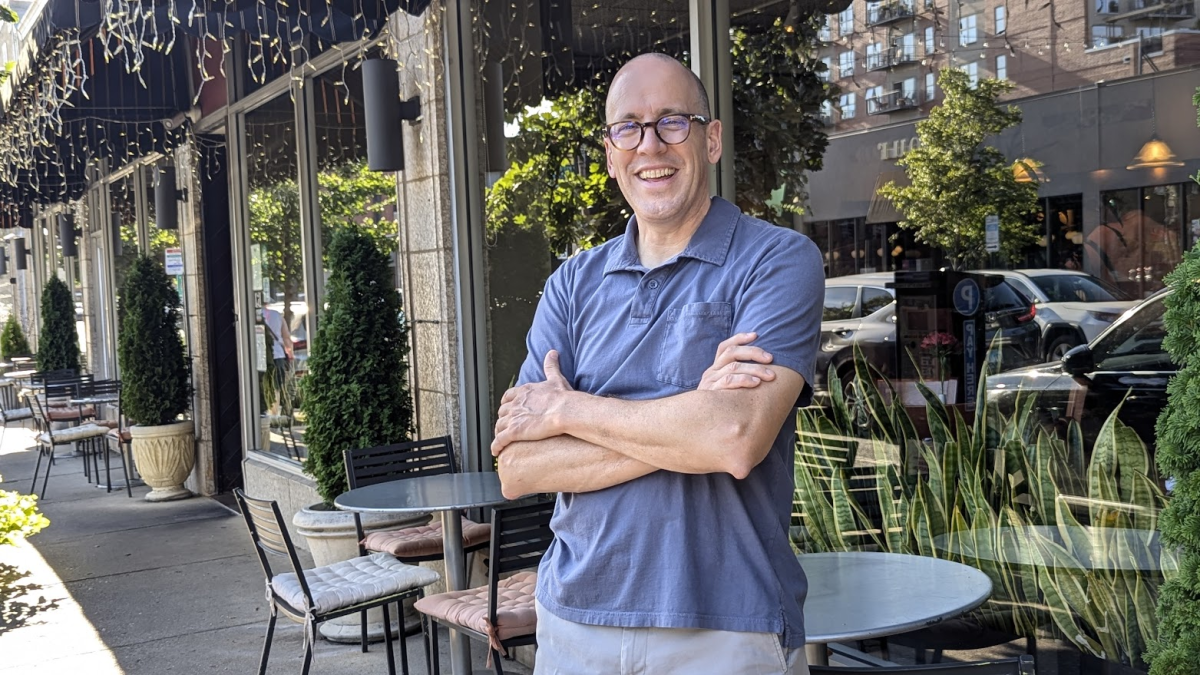First Presbyterian Church of Evanston hosted a Sunday panel discussion in collaboration with nonprofit Bright Stars of Bethlehem on the role of religion, politics and solidarity in the Israel-Hamas war.
Panelists included Rev. Mitri Raheb — co-founder of Bright Stars and Dar al-Kalima University in Bethlehem, a city in the West Bank — Rabbi Brant Rosen, founding rabbi of Tzedek Chicago, Palestinian-American activist Rami Nashashibi and Iva Carruthers, the general secretary of the Samuel DeWitt Proctor Conference.
Linda Edens, vice chair of the Bright Stars of Bethlehem board of directors, moderated the discussion. Each panelist had 15 minutes to speak about the topic.
Raheb started the conversation and spoke about what he called the “settler colonial project” that Israel has exercised in Gaza over the last century.
“It’s always about two issues: geography and demography,” Raheb said. “Israel would like to take all the geography, from the river to the sea, and to kick out the demography — the Palestinian demography, in all different kinds of ways.”
Raheb also spoke about Israel’s ground and air offensive in Gaza and the thousands of children that have been murdered. He said there are no more universities left in Gaza.
Israel’s military action in Gaza has killed more than 34,000 Palestinians, according to Palestinian officials. Israel’s ground and air offensive follows the militant group Hamas’ Oct. 7 attack on Israel which killed about 1,200 Israelis, according to Israeli officials.
Raheb spoke about Bright Stars, an organization committed to uplifting Palestinians by raising awareness and support for Dar al-Kalima University in Bethlehem, the first and only liberal arts university in Palestine. The university’s Gaza training center was destroyed in an airstrike by Israel during Holy Week, according to Raheb. Several volunteers of the center were killed or escaped to Rafah, Gaza, Raheb said.
“We were reaching out to thousands of kids through our program,” Raheb said. “All of this was totally destroyed during Holy Week.”
Rosen returned last week from the Erez crossing on the Gaza border, where he stood in solidarity with other rabbis calling for a ceasefire. He said the Jewish participation in the pro-Palestine movement, especially from young Jews, has been remarkable.
Rosen also visited the pro-Palestinian encampment at DePaul University on Saturday, where he saw several Jewish students publicly displaying solidarity, he said.
“They were doing it right there at the DePaul encampment, at a place where so many so-called leaders are saying that antisemitism is being expressed,” Rosen said. “One of the things I said last night was, ‘As a Jewish person, I feel perfectly safe here,’ and that probably got the biggest cheer of the evening.”
Rosen also emphasized the difference between Judaism and Zionism. He said that while Judaism is a “spiritual peoplehood,” Zionism is a political movement that arose in the 19th century and seeks to create a Jewish majority nation-state in historic Palestine.
He added that there is a new generation of proud Jews who identify as anti-Zionists.
“(New generation of Jews) have a deep sense of Jewish identity and desire for Jewish safety and security, but understand that Jewish safety and security cannot be inseparable from the safety and security of all peoples,” Rosen said.
Nashashibi, who is also the founder of the Inner-City Muslim Action Network in Chicago, spoke about his mother Nancy Haverstick’s story. She is a Palestinian-born woman whose family fled its home village of Ein Karem during the 1948 Nakba, the mass displacement and dispossession of Palestinians during the 1948 Arab-Israeli war.
Nashashibi talked about solidarity in Ein Karem, citing the time between 1945-47 when the village provided refuge to 250 Jews from Poland.
“This idea that, somehow, it was like this myth of a conflict between Jews and Muslims is absolutely asinine,” Nashashibi said.
Nashashibi also spoke at Northwestern’s pro-Palestinian encampment last week.
Haverstick, who was present in the audience, said the current war is almost like a second Nakba for her.
Still, she said she is hopeful that events like these can spread awareness and help create a generation of young people who see “what Israel is truly doing.”
“It’s so sad, and it’s wrong for the American people to identify themselves with these people,” Haverstick said. “And what I mean by these people are the Zionists that are doing this to the innocents over there.”
Carruthers, the last panelist, grew up in Evanston. She encouraged residents to accept the call of solidarity with the pro-Palestine movement the same way they have had the courage to support reparations for people of African descent.
Rosen also called for Evanston to pass a resolution drafted by city residents, which calls for a ceasefire in Gaza. Equity and Empowerment Commissioners previously withdrew a ceasefire resolution in December after controversy over whether it was more divisive or unifying for the city.
“If we don’t understand that this panel in itself is an act of resistance, if we don’t figure out how to continue this conversation after today, if we don’t embrace the vision of Bright Stars of Bethlehem after today, then this has just been a wonderful Sunday afternoon,” Carruthers said.
Related Stories:
— Rami Nashashibi speaks at NU encampment on Deering Meadow
— Jewish students have mixed reactions to pro-Palestine encampment
— Evanston Ceasefire clashes with City Council over resolution
